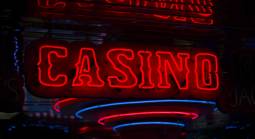How Gambling Laws Have Evolved in the UK
The UK has risen to become one of the most profitable and well-regulated gaming economies in the world. Despite its relative size in comparison to countries such as the US, the UK’s long-standing history of regulation, oversight and development has helped it become a £14.4 billion industry. In fact, thanks to its growth in recent decades, the UK and its Gambling Commission have become the proverbial gold standard in gaming regulation. From US states such as New Jersey to France, Italy and beyond, countries around the world have used the UK’s system as a blueprint for their own licensing systems.
Legal Changes Create a Betting Behemoth
Of course, becoming an international powerhouse in gaming doesn’t happen overnight. To get to where it is today, the British government has had to move with the times and innovate. Indeed, if you look at the history of gambling in the UK, there has been betting of sorts for centuries. Thanks to the monarchy, horse racing provided the roots for what was to become a multi-billion-pound industry.
The first recorded races were held in Chester back in 1539. King Charles II subsequently made Newmarket the home of British racing in the 1670s, something that prompted other monarchs to follow suit. At the same time racing was gathering steam, the first national lottery started. Available from England in 1694, the draw was another catalyst for the British betting revolution.
By the 19th century, the growth of a national railway network allows racing to flourish. As it became a public spectacle, betting started to emerge. Unregulated for a number of years, these early bookmakers helped create a culture of on-course betting.
Eventually, these activities became legal according to the letter of the law. On-course betting remained the only legal way to gambling in the UK until the 1960s. According to Benjamin Webb of bestcasinosites.net, the Betting and Gambling Act of 1960 led to the advent of commercial betting in Britain. Initially, the law allowed bingo halls to open their doors to the public and, within the first six months, 10,000 venues popped up across the country.
Going Straight Cleans Up the Industry’s Image
In tandem with regulated bingo halls, the 1960 Betting and Gambling Act allowed high street bookmakers to acquire a license. One of the main requirements of licensed operators is that they had to “go straight.” The implication here is that previously unregulated bookmakers weren’t always honest with their odds and payouts.
However, with new laws came a new culture of standardized betting protocols. The end result was a better service for consumers and, more importantly, an industry people believed was honest, open and fair. This shift in perception proved to be a major turning point for the industry. Although new laws made certain types of betting legal, it was the fact people felt they could trust bookmakers that really helped business boom.
With live betting shops and the first casinos opening up in the UK, the government acted again. In ratifying the Gaming Act 1968, the laws surrounding what constituted a commercial casino were liberalized. This led to another wave of venues opening their doors. Business boomed during the seventies and eighties, prompting the government to bring in the Betting and Gaming Duties Act of 1981. The law was a product of the industry’s success and provided a framework through which operators had to advertise their services. Much like the changes in 1960, this law further legitimized the betting industry and helped combat the idea that all betting establishments were crooked and out to fleece customers.
UK Gambling Laws Could Define US Betting Industry
By 2005, the internet betting revolution was in full swing and the British government was keen to ensure online standards matched those in place offline. First of all, the Gambling Act of 2005 superseded all previous laws and saw the creation of the UKGC. This non-governmental body took responsibility for licensing and regulating British operators.
From there, the Gambling (Licensing and Advertising) Act 2014 brought online betting and gaming companies under the control of the UKGC. Today, both live and online operators in the UK are required to hold a UKGC license and comply with local regulatory standards. For British bettors, this has helped create a stable economy that’s safe for all involved. However, in terms of the industry as a whole, the UK is now an example of what’s possible through regulation.
With PASPA being overturned in 2018, US states have been busy forging their own sports betting laws. This change has given rise to discussions regarding other forms of betting. Although growth may be fragmented, industry experts believe the advent of legal sports betting could give rise to new casino and poker laws. Indeed, if state lawmakers look to the UK, they’ll see that regulation is not only the best way to protect consumers but generate revenue. In a time when all states could use some extra tax dollars, UK gambling is serving up more than a few lessons for the US and the world at large.














